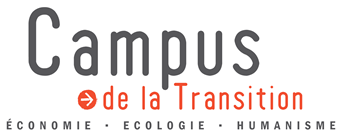Understanding to act, training to transform
How can we transform our way of thinking and acting for an ecological and social transition? What education and training is required to enable this shift? How can we support institutions and teachers in this necessary revolution in higher education?
The ecological and social transition is a major issue and an unprecedented challenge for current and future generations. The preservation of our planet and of life in all its forms imposes a new paradigm: a way of acting and thinking about the world radically different from what we have been culturally accustomed to until now. Education and training are indispensable in order to grasp this profound change and the complexity of the issues underlying the conduct of the ecological and social transition.
This is the raison d’être of the Great Transition Handbook: to provide actors in the education field with innovative theoretical and practical tools for a deep structural transformation.
A unique foundational knowledge and skills
The Great Transition Handbook presents the contributions of all disciplines in a single base of knowledge and skills organized according to a transition dynamic. The contributions are shared through six major gateways. Six complementary fields of questioning caused by the current upheaval in our living environment. Six gateways that each time invites the reader to take action.
This book is intended for all audiences, teachers and students alike. It does not propose a linear approach to the Great Transition or a lesson plan that could be simply added to an existing programme. It does not review each discipline to propose successive updates. More than any other, the challenges of the Great Transition need systemic coherence and effective action tools.
The “Great Transition” is systemic
In systems theory, the term “Great Transition” refers to a process of transformation in which a system moves from one dynamic equilibrium regime to another. In the current ecological and social context, the transition consists in seeking to move from a contemporary situation marked by unsustainable trajectories to a state of societies characterized by sustainability and equity, with respect to present and future generations.
Behind all these objectives that are before us, multiple questions arise: how to ensure these transitions become realities in a world shaped by global warming, the destruction of biodiversity, poverty, inequalities, conflicts over the appropriation of resources, and uncertainties?
The “Great Transition” is therefore systemic: at once ecological, social, economic, cultural, political, civic…, it also wants to be “just“.
The Great Transition Handbook wants to support stakeholders across education and civil society in this transformation by providing them with innovative theoretical and practical tools that can be applied in their daily professional and personal lives.
Key figures of the project:
- 13 thematic working groups
- 70 teacher-researchers, experts and students
- 1 handbook common base
- 6 gateways
- 12 disciplinary volumes
- 1 year of collaborative work
Release in bookstores on October 14, 2020
A selection of articles and programs that talk about the Great Transition Handbook
“Un manuel pour la transition écologique et sociale dans l’enseignement supérieur“
“La Tête au Carré” program, France Inter, November 19, 2020
“Un nouveau Manuel de la grande transition pour former tous les étudiants au défi climatique“
Le Monde, November 16, 2020
“Ecologie : ce manuel mandaté par le ministère pourrait transformer les programmes de l’enseignement supérieur”
Les Echos, October 15, 2020
